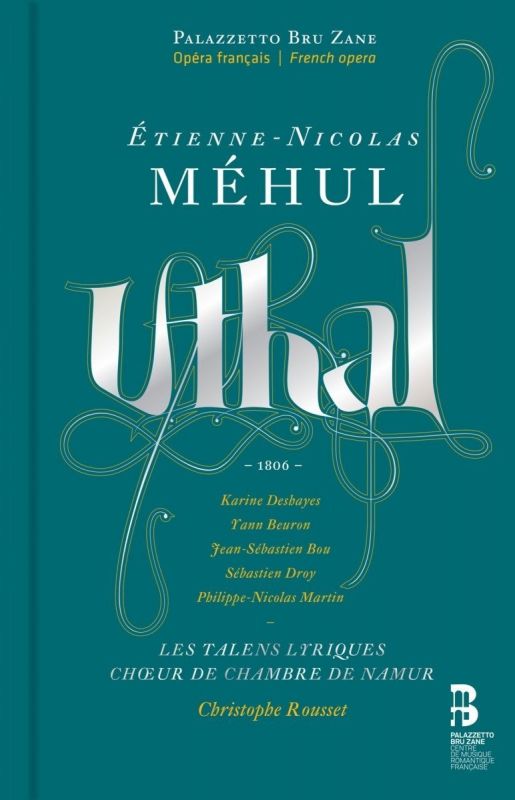MÉHUL Uthal
View record and artist detailsRecord and Artist Details
Composer or Director: Nicholas Etienne Méhul
Genre:
Opera
Label: Ediciones Singulares
Magazine Review Date: 03/2017
Media Format: CD or Download
Media Runtime: 60
Mastering:
DDD
Catalogue Number: ES1026

Tracks:
| Composition | Artist Credit |
|---|---|
| Uthal |
Nicholas Etienne Méhul, Composer
(Les) Talens Lyriques Artavazd Sargsyan, Deuxième Barde, Tenor Choeur de Chambre de Namur Christophe Rousset, Conductor Jacques-Greg Belobo, Quatrième Barde, Bass-baritone Jean-Sébastien Bou, Larmor, Baritone Karine Deshayes, Malvina, Mezzo Nicholas Etienne Méhul, Composer Philippe-Nicolas Martin, Le Chef des Bardes; Le Troisième Barde, Baritone Reinoud van Mechelen, Premier Barde, Tenor Sébastien Droy, Ullin, Tenor Yann Beuron, Uthal, Tenor |
Author: Tim Ashley
Uthal, however, was a succès d’estime that divided opinion and eventually slipped from the repertory. Jacques Bins de Saint-Victor’s occasionally awkward libretto cramps epic narrative within the conventions of French classical tragedy (complete with dialogue in alexandrines), and focuses on the figure of Malvina, her loyalties divided between her father Larmor and her husband Uthal, who has usurped Larmor’s throne. To convey the sombre, war-torn atmosphere and penumbral northern setting, Méhul omits violins from his orchestra and gives prominence to brass and high woodwind. Rousset and Les Talens Lyriques mine the resulting sonorities for all their worth, and the effect is unquestionably startling, the dark colour suggestive of flashes of metal seen through fog. The 19th-century response, however, was far from positive. Cherubini found the opera ‘pretentious’. Berlioz, in a major lapse of judgement, complained of ‘monotony’.
Rousset also lays due emphasis on the work’s pivotal nature as well as its originality. Vocal lines that look back to Gluck alternate with brass-writing that anticipates Weber. The lurching figurations that usher Uthal on to the stage sound like Berlioz, who, whatever his qualms, also learnt much from the exquisite instrumentation of the bardic ‘Hymne au sommeil’, the most popular section in Méhul’s lifetime.
Modern listeners are more likely to be fazed by Méhul’s extensive use of dialogue for the confrontations between Uthal and Larmor, and the recognition scene for Malvina and Uthal on his arrival, disguised, in Larmor’s territory. Speech and song, however, are seamlessly integrated here, maintaining both dramatic tension and consistency of characterisation throughout. Yann Beuron’s Uthal and Jean Sébastien Bou’s Larmor square off implacably in their slanging matches, and Beuron’s vulnerability in his scenes with his wife contrasts sharply with the gathering ferocity with which Bou denigrates him. Karine Deshayes vividly registers Malvina’s oscillating emotions and the momentousness of the choice she must make between husband and father. The Bards sound beguiling in their Hymn, though it’s the Chief Bard’s ‘Près de Balva, sur le nuage’, handsomely sung by Philippe-Nicolas Martin, that emerges as the work’s most beautiful passage. It’s hard to imagine a better bicentenary tribute: do listen to it.
Discover the world's largest classical music catalogue with Presto Music.

Gramophone Digital Club
- Digital Edition
- Digital Archive
- Reviews Database
- Full website access
From £8.75 / month
Subscribe
Gramophone Full Club
- Print Edition
- Digital Edition
- Digital Archive
- Reviews Database
- Full website access
From £11.00 / month
Subscribe
If you are a library, university or other organisation that would be interested in an institutional subscription to Gramophone please click here for further information.




